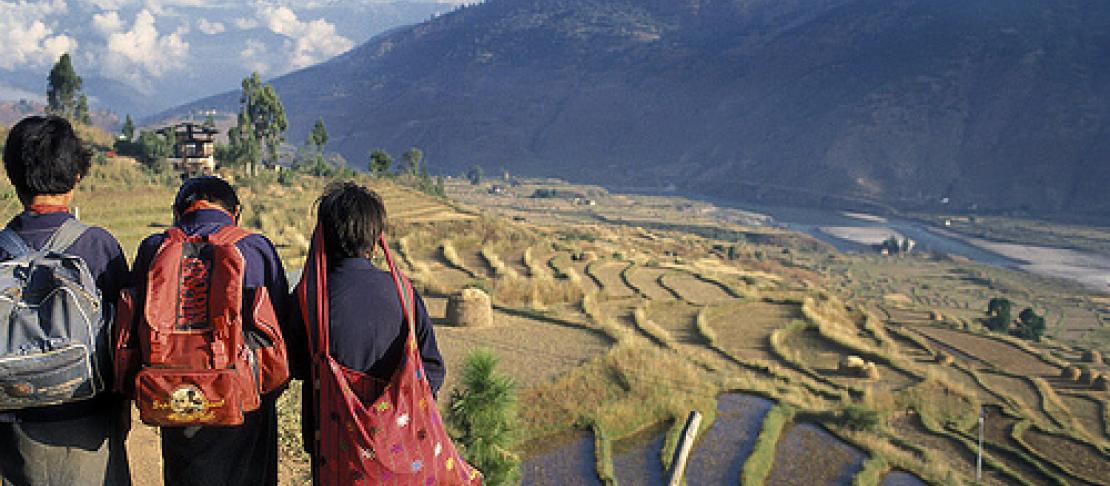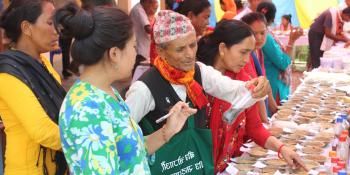All set for the Bhutan Climate Summit

The build up to the Bhutan Climate Summit for a Living Himalayas received unprecedented response last week with the completion of expert group meetings on the key themes of water, biodiversity, food security and energy.
The Bhutan Climate Summit is an initiative of the Royal Government of Bhutan, and will bring together leaders, decision makers and technical experts from Government agencies as well as research and development organizations to identify key issues and priorities for climate change adaptation in the eastern Himalayas, and foster partnerships and networking to facilitate sharing of information and experiences.
The summit is focused on four themes: Fresh Water, Food Security, Energy Security and Biodiversity Conservation each led by Bangladesh, India, Nepal and Bhutan respectively. Each lead country is responsible for holding consultations and meetings to develop theme based regional road maps and agree on key elements to be included in the summit declaration.
The food security expert group meeting concluded successfully in the Indian Capital of New Delhi on 27 July 2011. The meeting unanimously agreed for a need to develop and implement clear policy on food security and climate change in the region. They identified rising population, increasing developmental activities, declining arable land, and degradation of natural resources as key threats to food security in an otherwise biologically and culturally rich region. The delegates agreed to develop a common regional action plan on food security addressing climate issues and mitigating threats. The delegates also proposed to establish mechanisms for sharing relevant material related to genetic resource and breeding materials for research and development in the area of germplasm for plants, animals, fish and microbes. The food security meeting was jointly organized by the environment and forests ministry and the Indian Council of Agricultural Research of the agriculture ministry of the government of India.
The energy expert group meetings concluded in Kathmandu, Nepal on July 29. The participants discussed energy security in the face of changing climate and to draw up recommendations to be presented in the Bhutan Climate Meeting. The country delegates agreed to mainstream climate resilience in energy systems through diversification of energy sources.
Expert group meetings on water and biodiversity also took place in Dhaka, Bangladesh and Thimphu Bhutan respectively.
The countries in the region will gather the messages and lessons from the expert meetings and bring them to the Bhutan Climate Summit in November, with the objective of creating and implementing a a 10-year road map for adaptation to climate change in the Eastern Himalayas.
This story was contributed by wangsonam [at] gmail [dot] com (Sonam W. Wang), who is working with CGIAR Climate on mitigation and adaption policy in the South Asian countries of Bhutan, Nepal, Bangladesh and India. Read more about this research.


